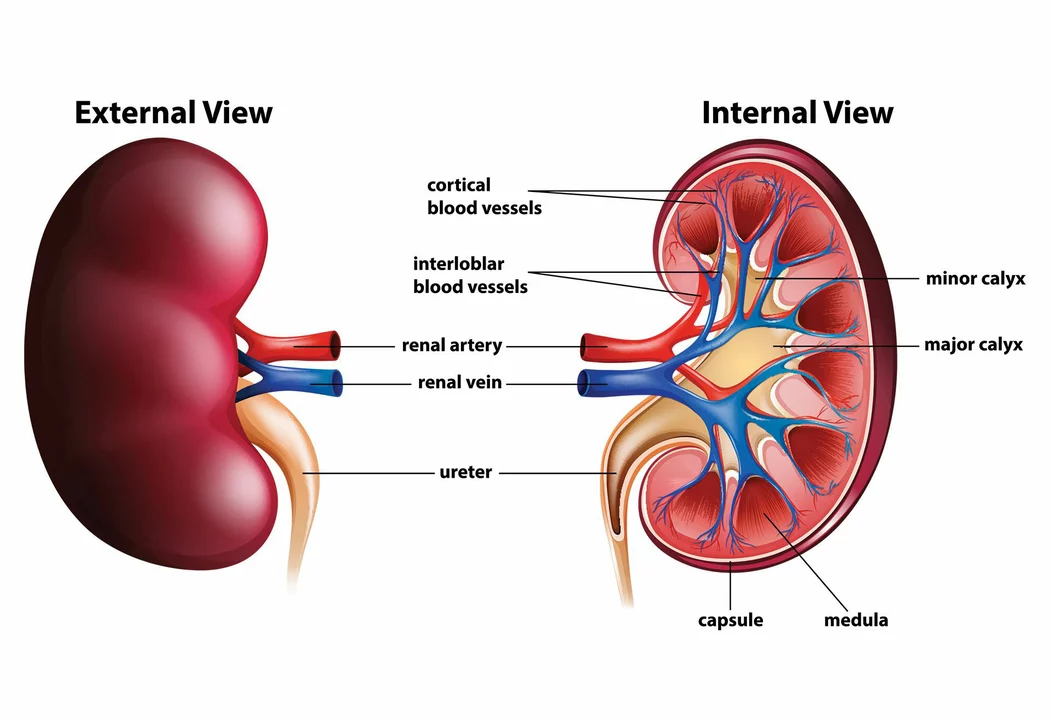Kidney Health: Simple Ways to Keep Your Kidneys Strong
If you want your kidneys to stay in good shape, start treating them like any other part of the body that needs care. They filter waste, balance fluids, and keep blood pressure steady – all without you even noticing. The best news? Most of what helps your kidneys is simple daily habits you can add right now.
Everyday habits that support kidney health
First up, hydration. Drinking enough water is the single most effective thing you can do. Aim for about 8 glasses a day, but listen to your body – if you’re active or live in a hot climate, you’ll need more. A good rule of thumb is to keep your urine light yellow; darker shades mean it’s time to sip more.
Second, watch the salt. Too much sodium makes kidneys work harder and can raise blood pressure, which strains them over time. Try cutting back on processed foods, fast food, and adding less table salt. Flavor meals with herbs, lemon juice, or garlic instead – they add taste without the extra load.
Third, move a little every day. Exercise improves circulation and helps control weight, both of which reduce kidney stress. You don’t need marathon training; a brisk 30‑minute walk, cycling around the block, or a quick home workout does the trick.
Finally, keep an eye on blood sugar and blood pressure. High levels in either area damage tiny vessels in the kidneys. If you have diabetes or hypertension, follow your doctor’s plan, take medication as prescribed, and get regular check‑ups.
Foods and supplements that help your kidneys
What you eat matters a lot. Focus on fresh fruits and veggies, especially berries, apples, and leafy greens. They’re packed with antioxidants that protect kidney cells from damage. Add beans or lentils for protein without the extra saturated fat found in many meats.
If you like dairy, choose low‑fat options; high‑fat cheese can raise phosphorus levels, which isn’t great for kidney health. Also, limit red meat and processed meats – they’re higher in purines that turn into uric acid, a waste product kidneys have to filter out.
When it comes to supplements, be cautious. Some people think calcium or vitamin D can help, but too much can cause mineral buildup in the kidneys. Talk to a pharmacist or doctor before adding anything new. A modest dose of omega‑3 fish oil is usually safe and may lower inflammation.
In short, treat your kidneys like any other organ: give them clean water, keep salt low, stay active, manage blood pressure and sugar, and fill your plate with fresh, whole foods. Small changes add up fast, and you’ll feel the difference in energy levels and overall well‑being.
Ready to start? Grab a reusable bottle, swap out that salty snack for an apple, and set a reminder to move for five minutes every hour. Your kidneys will thank you – and so will your body.
Ticlopidine and Renal Function: What You Need to Know
As a blogger, I recently researched the topic of Ticlopidine and its effects on renal function. Ticlopidine is an antiplatelet medication that is often prescribed to prevent blood clots, but it could potentially affect kidney function. It is essential to monitor renal function while taking this medication, as it may lead to complications. In some cases, doctors may adjust the dosage or consider alternative medications to ensure the safety of the patients. Overall, it is crucial to be aware of the potential impact of Ticlopidine on renal function and discuss any concerns with your healthcare provider.
